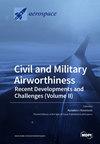Crater Triangle Matching Algorithm Based on Fused Geometric and Regional Features
IF 2.1
3区 工程技术
Q2 ENGINEERING, AEROSPACE
引用次数: 0
Abstract
Craters are regarded as significant navigation landmarks during the descent and landing process in small body exploration missions for their universality. Recognizing and matching craters is a crucial prerequisite for visual and LIDAR-based navigation tasks. Compared to traditional algorithms, deep learning-based crater detection algorithms can achieve a higher recognition rate. However, matching crater detection results under various image transformations still poses challenges. To address the problem, a composite feature-matching algorithm that combines geometric descriptors and region descriptors (extracting normalized region pixel gradient features as feature vectors) is proposed. First, the geometric configuration map is constructed based on the crater detection results. Then, geometric descriptors and region descriptors are established within each feature primitive of the map. Subsequently, taking the salience of geometric features into consideration, composite feature descriptors with scale, rotation, and illumination invariance are generated through fusion geometric and region descriptors. Finally, descriptor matching is accomplished by computing the relative distances between descriptors and adhering to the nearest neighbor principle. Experimental results show that the composite feature descriptor proposed in this paper has better matching performance than only using shape descriptors or region descriptors, and can achieve a more than 90% correct matching rate, which can provide technical support for the small body visual navigation task.基于融合几何和区域特征的火山口三角形匹配算法
在小天体探测任务的下降和着陆过程中,环形山因其普遍性而被视为重要的导航地标。识别和匹配环形山是视觉导航和基于激光雷达的导航任务的重要前提。与传统算法相比,基于深度学习的环形山检测算法可以实现更高的识别率。然而,在各种图像变换条件下匹配陨石坑检测结果仍是一项挑战。针对这一问题,本文提出了一种结合几何描述符和区域描述符(提取归一化区域像素梯度特征作为特征向量)的复合特征匹配算法。首先,根据陨石坑检测结果构建几何配置图。然后,在图的每个特征基元中建立几何描述符和区域描述符。然后,考虑到几何特征的显著性,通过融合几何描述符和区域描述符,生成具有尺度、旋转和光照不变性的复合特征描述符。最后,通过计算描述符之间的相对距离并遵循最近邻原则,完成描述符匹配。实验结果表明,本文提出的复合特征描述符比只使用形状描述符或区域描述符具有更好的匹配性能,可以达到 90% 以上的正确匹配率,可以为小型人体视觉导航任务提供技术支持。
本文章由计算机程序翻译,如有差异,请以英文原文为准。
求助全文
约1分钟内获得全文
求助全文
来源期刊

Aerospace
ENGINEERING, AEROSPACE-
CiteScore
3.40
自引率
23.10%
发文量
661
审稿时长
6 weeks
期刊介绍:
Aerospace is a multidisciplinary science inviting submissions on, but not limited to, the following subject areas: aerodynamics computational fluid dynamics fluid-structure interaction flight mechanics plasmas research instrumentation test facilities environment material science structural analysis thermophysics and heat transfer thermal-structure interaction aeroacoustics optics electromagnetism and radar propulsion power generation and conversion fuels and propellants combustion multidisciplinary design optimization software engineering data analysis signal and image processing artificial intelligence aerospace vehicles'' operation, control and maintenance risk and reliability human factors human-automation interaction airline operations and management air traffic management airport design meteorology space exploration multi-physics interaction.
 求助内容:
求助内容: 应助结果提醒方式:
应助结果提醒方式:


